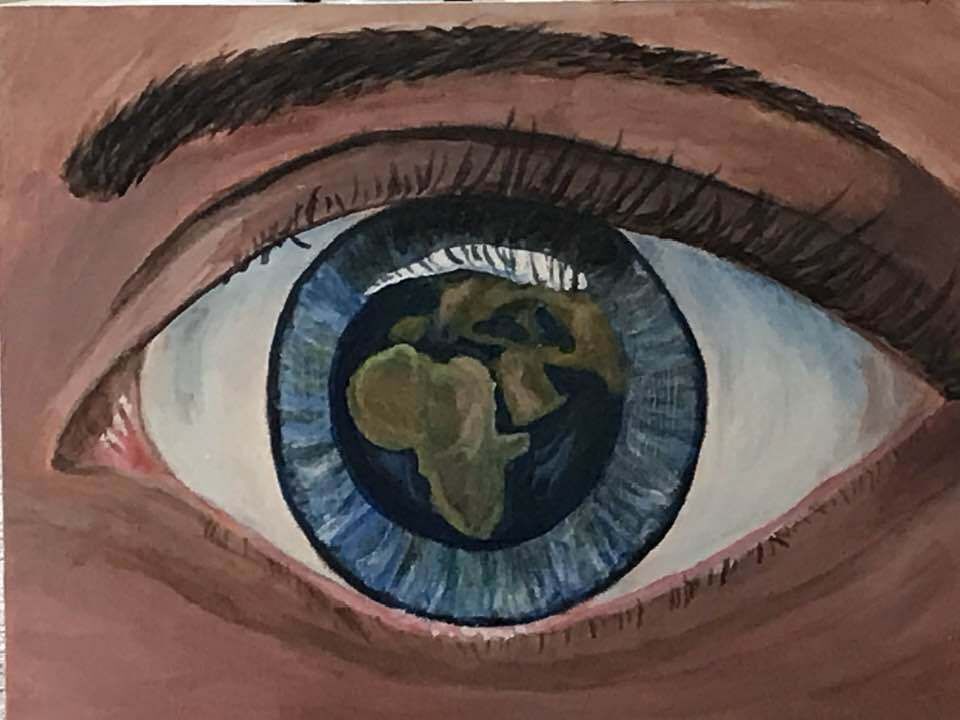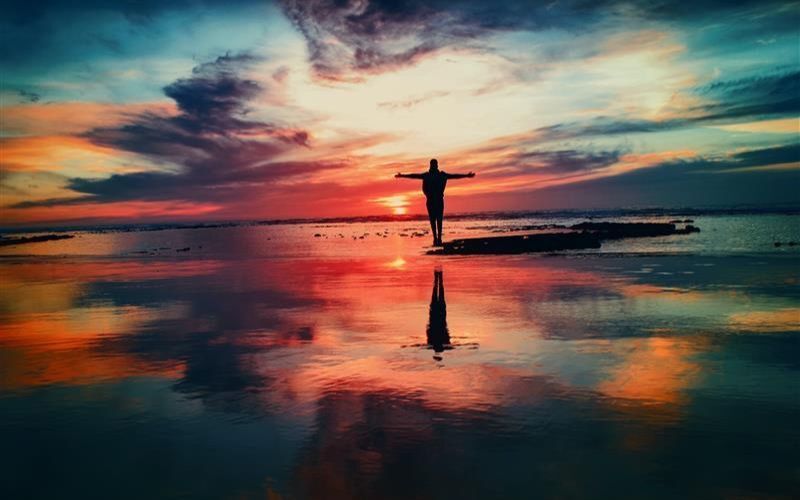
Hello friends,
Barbara Kaufmann is the Lead Volunteer in the Arts sector of the Charter for Compassion. She wrote a poem after learning about the Hamas–Israel war and is now sharing it with the world. You can learn more about her at the end of this entry, where her bio is.
She also wrote the following commentary below.
Let us know what you think in the comments!
-Felipe
Commentary “Reporting for Duty (or How to Wage Guerilla Compassion)”
This poem had its genesis as a theme and a means to promote compassion as a viable aspiration for the world—something I’ve made my legacy work. I wondered what would get people’s attention; what would move them into action? This piece turns war on its head. It’s designed to startle.
What I would call the "bones of the poem" were there in a few lines and stanzas, but it was Hamas' attack on Israel and the obscene nature of the crimes against the Israeli people that reduced everyone to less than human which made revisiting and finishing this poem feel urgent. It seemed impossible that humans could do that to other humans-- no matter the grievance.
As it stands now, opposing sides are poised to kill each other over a conflict that someone else started. It’s a manipulation of “let’s you and him fight” that seduces the parties into an all-out-war designed and envisioned by a third party. There is a very real potential for not just senseless slaughter, but for things to devolve into genocide.
I was in extreme pain watching the events in the Middle East unfold. And I was deep in depression and disappointment that the humans involved couldn’t see the obvious bait and the unthinkable trajectory that seems inevitable.
There’s much at stake and the stakes are bigger than anyone looking at the conflict realizes. How are we to save the planet if we see dividing lines and pieces of the globe as “mine” and “ours?” If we can’t get along, how are we going to save our race from extinction when the planet becomes uninhabitable because we are being irresponsible stewards? From the modern perspective-- the new view, looking back on Earth, we see no dividing lines. We are one. We are all connected. We have work to do. If we are to succeed in saving the planet and saving our race we need to “see” differently—to see the Earth as whole, as our collective home, and humanity as our collective family. There is no room for selfish demands for pieces of the pie, for violence or war. It’s obsolete. We need to grow ourselves up and instead of destroying it, we need to get to work saving life-- all life.
At times like this people look to poets to put their thoughts and feelings into words. I have gotten more requests for this poem than any other, and I’ve been writing and publishing poetry since sixth grade. It’s too contemporary and urgent to wait for a publisher and too important to sit idle. I am pleased the Charter found value in it and has decided to share it on this platform. I welcome reactions and feedback.
Barbara was recorded reading her poem by Darby McCarthy, a local TV reporter who works out of TV 26 Green Bay, WI, USA. You can play the following video and read along the poem with her. Artwork used in the video is by Barbara Kaufmann as well.
Reporting for Duty (or How to Wage Guerilla Compassion)
By Barbara Kaufmann
We do war well.
We’ve mastered violence.
Instruments of war are
sophisticated, disciplined,
priority-funded
to wage chaos,
kill mass humans
and serve one
supreme commander—
Death.
Instead of tanks,
rocket launchers,
hand grenades,
automatic rifles…
what if
we deployed artillery
to wage compassion?
Instead of epochs spent
to conquer, colonialize,
enslave, subjugate,
exploit, annex, erase,
convert, occupy, colonize,
or dominate
to exhaustion…
we found other
pastimes for amusement
like… appreciate
alleviate, mitigate,
accentuate,
adulterate—the power
of concert and
collaboration,
drafting legions
of insurgent benefactors?
We recruit youth to fight,
harden them for soldier-hood,
teach them discipline
to march in lockstep,
their cadence antiquated—
a parade to war
that’s pathetically obsolete.
But what if we trained
battalions to serve
with compassion so fierce
there’s collateral damage
heavy casualties—
and conflagration
that takes no prisoners?
What infantry might
patrol for empathy
in the darkness of night?
What arsenal would
advance the mission,
and inflict the
maximum compassion?
What could replace
the crisp salute—
snap to attention
that pays respect
to a fellow warrior
also engaged in… love?
What salutation
speaks compassion?
Would it look something like
“Wakanda Forever!?”
What uniform would
the compassion army wear?
What color camo says
“I come in peace?”
What instrument to signal
Reveille, “charge,”
“report for duty”
to spread solidarity
where hatred advances now?
How to ascend
through the chain of command,
plan strategies for attack
on ecosystems and nations
to wield guerilla compassion
for widespread impact
and far-flung casualties?
What headquarters
would train recruits,
deploy troups?
Where is Centcom?
What commander
gives the order
to dispatch the ranks,
surround the perimeter
and hand to hand— combat
the hatred,
maintain the barrage
until there’s unconditional—
surrender?
Would thoughts and prayers
be enough
to address a wrong?
Pacify in disaster?
Or deployed for tragedy,
quench a different thirst
used to blood?
Would the human tongue
sharpened by
the knife of time,
trained by habit,
weaponized for war
(already on hind legs)
lash out in anger
or hold the ground
and forward position?
War doesn’t work.
We can’t afford war
and its now puny distraction.
The stakes are far greater
than we can comfortably contain
or even speak into words.
We have a planet to save—
we have to heal a homeland—
the homestead now, is Earth.
What if
instead of the impulse
to “otherize,”
our default position
was solidarity?
A kindship with humans
made “other” only by habit,
that defers now to brotherhood
(instead of the adrenalin,
yes… that alleviates boredom)
to evacuate old trenches
in pursuit of
other amusements?
Did this journey feel awkward?
Is it because
we’re intimate with
the language of conflict, but
the vernacular of compassion,
not so much.
Where are the open-handed ones?
The open hearted ones?
Where the helpers—
Mr. Rogers said to look for?
Are we the ones we’ve
been waiting for?
A different kind of
strike force?
Could it be true
we’re here—now—for a reason
because we were
made for these times?
Will my outstretched hand
fit in yours?
And won’t you be… my neighbor?
© Barbara Kaufmann 2023
Bio: Artist, activist and author, Barbara Kaufmann, One Wordsmith, writes “to simply change the world.” Staff, writer and Sector Lead for the international Charter for Compassion, for 10+ years she has committed to making the world a compassionate home for all beings. Her concern about the threat of nuclear and chemical weapons led her to duty as a Sister Cities’ Officer in one of the world’s first partnerships between the U.S. and Soviet Union where her city collaborated with governments, the U.N., military and other entities to decommission weapons of mass destruction while making friends with former enemies.
An award-winning freelancer, she’s written for the Huffington Post; Voices Education Project, the Charter for Compassion, Medium and other publications. She initiated a curriculum on bullying in all its incarnations dedicated to Lady Diana and Michael Jackson. A founding case author for George Washington University School of Business, she’s authored essays, magazine articles and provocative and performance poetry. Trained artist, journalist and photographer, she founded Walking Moon studios along with Jo Vander Grift and has written scripts and directed promo films and documentaries.
After seminary, ordination, and training in Spiritual Emergency, she became “Rev. B,” de facto minister for Michael Jackson fans after his death, stewarding them through their grief while researching Jackson’s life and work as the most visible humanitarian and cheerleader in the history of humanity. Currently in discernment, she’s considering a book as she writes her legacy poetry, articles and essays.


